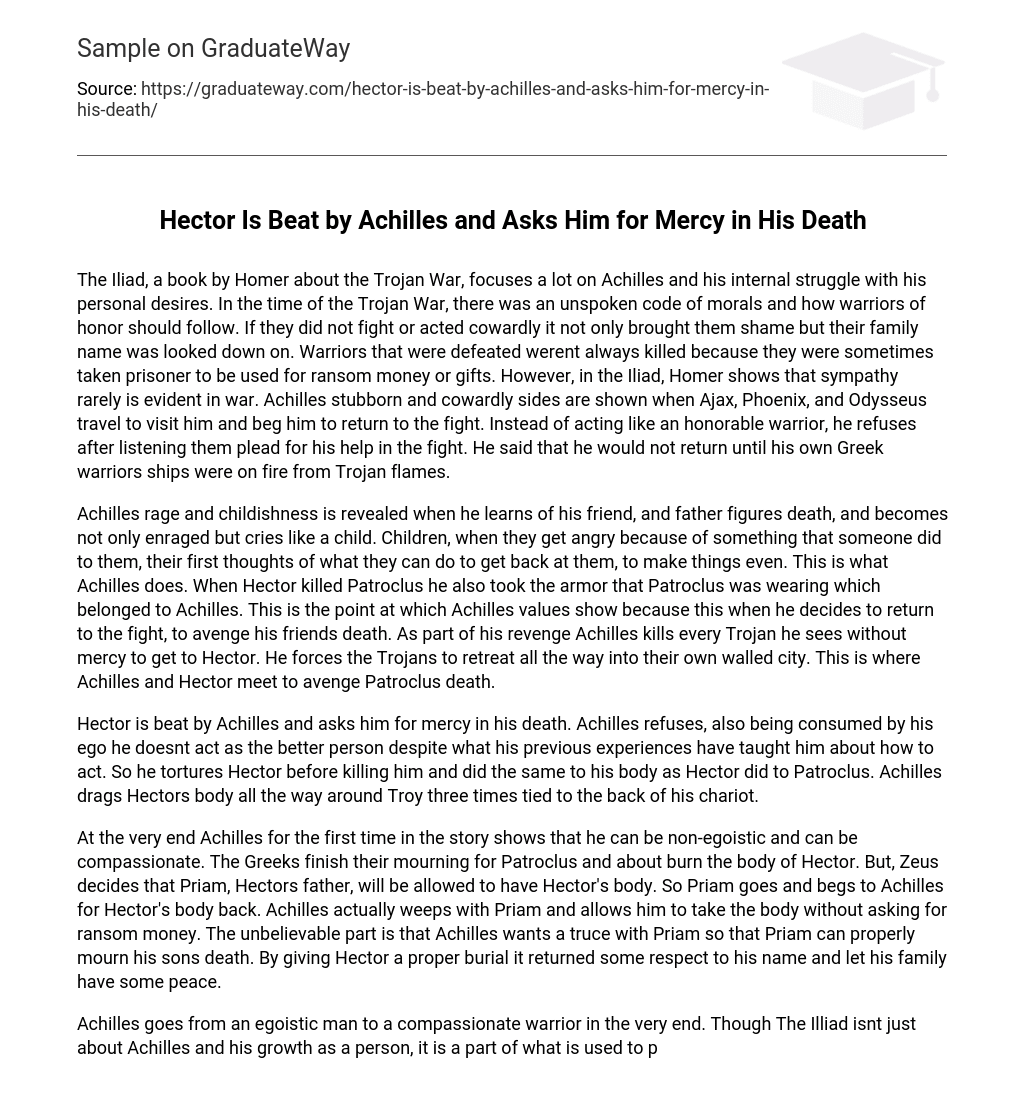The Iliad, written by Homer, explores the Trojan War and primarily focuses on the internal struggles faced by Achilles. During this period, there existed an implicit moral code that warriors of honor were expected to follow. Failure to engage in battle or display cowardice not only brought shame upon the individual but also tainted their family’s reputation. It was common for defeated warriors to be captured and held as prisoners, often serving as bargaining tools for ransom or gifts. However, Homer’s Iliad illustrates the scarcity of sympathy during times of war. Achilles reveals his stubbornness and cowardice when Ajax, Phoenix, and Odysseus visit him, beseeching him to rejoin the fight. Instead of behaving as an honorable warrior, he adamantly refuses their pleas and declares that he will not return until the Greek warriors’ ships burn from Trojan flames.
The text reveals Achilles’ rage and immaturity when he learns about the death of his friend and father figure. He becomes not only furious but also cries like a child. Similar to children, who retaliate when someone wrongs them, Achilles contemplates how he can seek revenge to restore balance. This is exactly what Achilles does. When Hector kills Patroclus and takes Achilles’ armor that Patroclus was wearing, Achilles’ values come into play. It is at this moment when he decides to return to battle, seeking vengeance for his friend’s death. In his pursuit of revenge, Achilles mercilessly kills every Trojan he encounters in order to reach Hector. He forces the Trojans to retreat all the way back to their own fortified city. It is within this context that Achilles and Hector confront each other to avenge the death of Patroclus.
Despite being beaten by Achilles, Hector pleads for mercy in his death. However, consumed by his ego, Achilles refuses to act as the better person, disregarding the lessons from his previous experiences. Consequently, he tortures Hector before ultimately killing him, mirroring what Hector had done to Patroclus. Achilles then proceeds to drag Hector’s body tied to the back of his chariot, circling around Troy three times.
Achilles, for the first time in the story, displays altruism and compassion as he allows Priam, Hector’s father, to retrieve his son’s body. Despite finishing their mourning for Patroclus and preparing to burn Hector’s body, the Greeks are diverted by Zeus’s decision to grant Priam permission to claim the body. Thus, Priam approaches Achilles and pleads for Hector’s body. Astonishingly, Achilles not only weeps with Priam but also relinquishes the body without demanding a ransom. Furthermore, Achilles proposes a truce with Priam so that he can mourn his son’s death properly. This act of providing Hector a dignified burial restores honor to his name and offers solace to his family.
Achilles’ transformation from a self-centered individual to a sympathetic fighter occurs towards the conclusion of the narrative. While The Illiad does not solely focus on Achilles’ personal development, it forms a crucial element that parallels and shapes the overall themes of love, bravery, warfare, and the utmost importance of honor.





